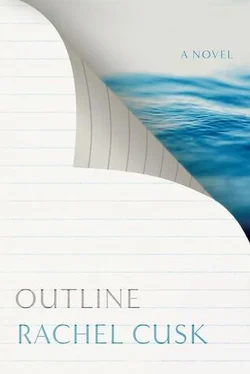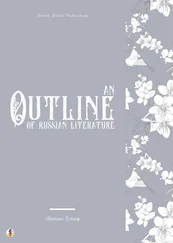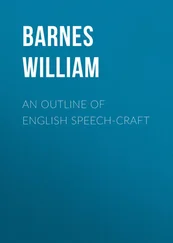‘Imagine, then, my horror,’ he said, ‘when I finally went to university and fell in with a group of fine, committed, like-minded individuals such as I had dreamed my whole life of having as friends, only to discover that the chief hobby and pastime of this group, their greatest love — after politics — was dancing. Night after night they would invite me to dances and I would, of course, refuse. My closest associate in this social world, Maria, a girl with whom I had the most passionate political discussions, a girl I shared everything with, even my love of crosswords, of which we would complete several together each day — even Maria was disappointed in my refusal to participate in this traumatic activity. Trust me, she said, just as my mother had said before her — trust me, you’ll enjoy it. I came to believe, in the end, that if I didn’t dance I would lose Maria’s friendship, while at the same time being certain that once she saw me dancing I would lose it anyway. There was no way out, and so I agreed one evening to accompany them to the club they always went to. It was not at all what I expected, for the reason that it had nothing to do with the modern world. It was a place devoted to the style and music of the nineteen-fifties: people came there dressed, as it were, in costume, and danced something called Lindy Hop. Seeing this, I was more terrified than ever; but perhaps,’ he said, ‘the best way to confront our fears is to put them in costume, so to speak; to translate them, for the simple act of translation very often renders things harmless. The habits — one might almost say the constraints — of one’s personality and cast of mind are slipped free of; I found myself walking on to the dance floor,’ Christos said, ‘hand in hand with Maria, convinced that I should fall, and yet when the music started — an irresistible, happy music which, to this day, I am unable to hear without every trace of melancholy and doubt evaporating — I found myself not falling but flying, flying up and up, around and around, so fast and so high that I seemed to fly clear even of my body itself.’
My phone rang on the table in front of me. It was my younger son’s number. I picked it up and said that I would call him back later.
‘I’m lost,’ he said. ‘I don’t know where I am.’
Holding the phone to my chest I told the group that there was a minor emergency and that we would take a short break. I went out and stood in the corridor, where there were noticeboards with lists and advertisements and bulletins pinned to them: apartments to rent, photocopying services, concerts forthcoming. I asked my son whether he could see a sign with a road name on it.
‘I’ll just look,’ he said.
I could hear traffic in the background and the sound of his breathing. After a while he gave me the name of the street, and I asked him what on earth he was doing there.
‘I’m trying to get to school,’ he said.
I asked why he wasn’t going to school the way I had arranged for him this week, with his friend Mark and Mark’s mother.
‘Mark isn’t coming to school today,’ he said. ‘He’s ill.’
I told him to turn around and walk back the way he had come, telling me the name of each street he passed, and when he reached the right one I told him to turn down it and carry straight on. After a few minutes, during which I listened to his puffing breath and the tapping of his feet on the pavement, he said: ‘I can see it, I can see the building, it’s all right, I can see the building.’
You’re not late, I said, looking at my watch and calculating the time in England; you’ve got a few minutes to get your breath back. I reminded him of the directions in reverse that he was to follow afterwards and said I hoped he’d have a nice day.
‘Thanks,’ he said.
In the classroom the group was waiting, just as I had left it except that one student, a very large and soft-looking young girl who wore glasses with thick black frames, was eating an enormous savoury pastry whose meaty smell was quite overpowering. She held the bottom of the pastry in its paper bag while she bit slowly from the top, to prevent crumbs from falling. Beside her sat a young man as slim and dark and compact as she was soft and formless. He put up his hand fleetingly and withdrew it again. On his way here, he said, in a quiet, precise voice — I looked down to find his name, which was Aris — on his way here he had passed, lying by the side of the road, the putrefying body of a dog, grotesquely swollen and cloaked in swarms of black flies. He had heard the sound of the flies from some way off, he added, and had wondered what it was. It was a sound that was menacing while also being curiously beautiful, so long as you couldn’t see its source. He did not come from Athens, he continued, but his brother lives here and offered him a place to stay for the week. It was a very small apartment; he was sleeping on the sofa, in a room that was also the kitchen. He slept with his head right next to the fridge, on whose door there were various magnets he had had no choice but to examine, including one made of plastic in the shape of a pair of naked breasts, so crudely formed that the nipple on the right breast was significantly off-centre, a dissonance he had considered for many hours while lying there. His brother washed his clothes in the kitchen sink and then hung them all around the room to dry: he worked in an office and needed clean shirts every day. Every available chair in the room, as well as the shelves and window ledges, had a shirt draped over it. While drying, the shirts had taken the impress of the forms beneath them. Lying on the sofa, he had noticed this.
The girl beside him had by now finished her pastry and was occupied in folding the bag into a neat square, smoothing out the creases with her fingers. When she looked up she caught my eye and immediately dropped the paper square on to the table in front of her with a guilty expression. Her name was Rosa, she said, and she wasn’t sure whether her own contribution would be permitted. She didn’t know whether she had understood the exercise correctly. In any case, hers wasn’t like the others, and it probably wouldn’t count, but it was all she could think of. She hadn’t really seen anything on her way here: all that had happened was that she had passed the park where her grandmother used to take her in the afternoons when she was smaller. There was a little playground there, with a swing she used to sit on while her grandmother pushed her. This morning she had seen the playground as she passed, and had seen the swing, and had remembered her grandmother and the pleasant afternoons they spent together. She fell silent. I thanked her, and she gazed at me mildly through her black-rimmed glasses.
The hour was nearly up. The woman sitting directly opposite me, whose somewhat startled face was positioned beneath the face of the clock on the wall, so that the two shapes had become joined or connected in my perception to the extent that I had almost forgotten she was there, now said that it had been interesting for her to realise how little she noticed of the objective world. Her consciousness, at this point — she was forty-three years old — was so crammed full not just of her own memories, obligations, dreams, knowledge and the plethora of her day-to-day responsibilities, but also of other people’s — gleaned over years of listening, talking, empathising, worrying — that she was frightened most of all of the boundaries separating these numerous types of mental freight, the distinctions between them, crumbling away until she was no longer certain what had happened to her and what to other people she knew, or sometimes even what was or was not real. This morning, for instance, her sister had called her very early — neither of them sleeps very well, so they often talk at this hour — to tell her of the evening she and her husband had spent at a friend’s house, where they were invited for dinner. The friend had just had her kitchen completely extended and refurbished, and the centre-piece was an enormous sunken glass panel in the ceiling that made the room as light and airy as a cathedral.
Читать дальше












